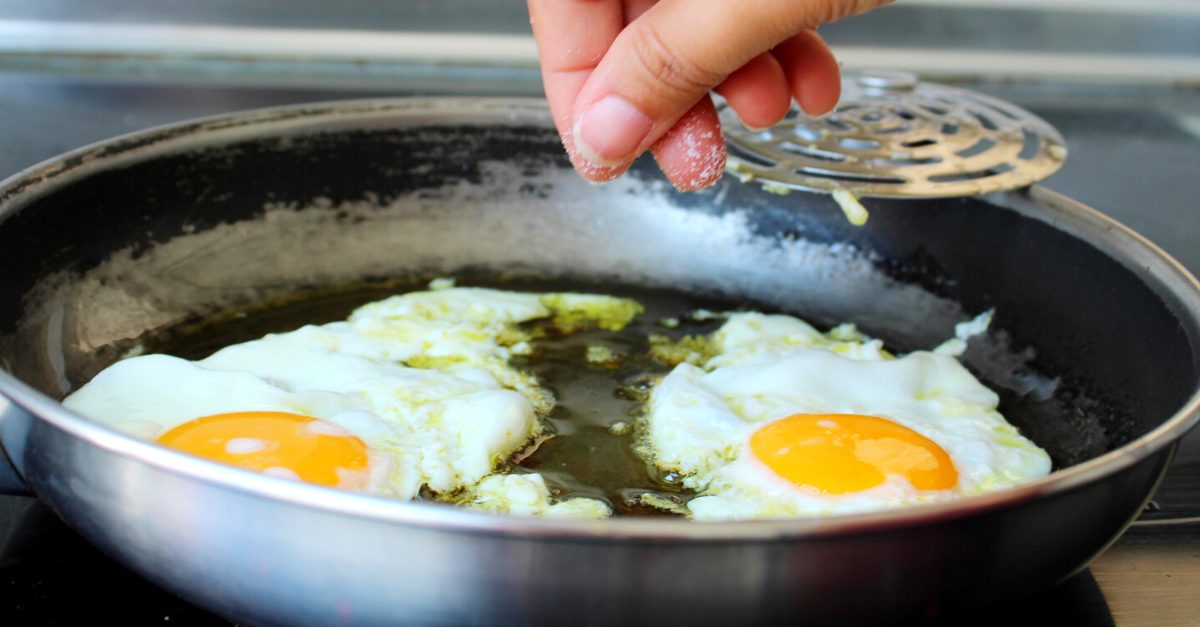5 Signs You’re Eating Too Much Fruit
Too many people think that they can skip the vegetable part and make it up with fruit instead.
;Resize,width=742;)
“Too much fruit! Is that even possible?” I hear you say. After all, even the government tells us we should eat at least five portions of fruit and vegetables a day, so it must be ok, right?
Yes, fruit is healthy and nutritious, but part of the 5-a-day of fruit and veggies recommendation actually includes veggies. Too many people think that they can skip the vegetable part and make it up with fruit instead.
Here are the signs that you may be going overboard on fruit:
1. Frequent Bloating

Fruit contains a lot of fructose, which is a type of sugar. A lot of people can’t digest and absorb large amounts of fructose, and it’s believed that up to 40% of people suffer from a condition called fructose malabsorption – fructose is not absorbed well across the small intestine.
The problem with this is that fruit will then sit in the gut and ferment with the help of bacteria that feast on the fructose. This causes a lot of gas and bloating.
Glucose helps to facilitate the absorption of fructose, and fruit does contain glucose. However, most fruits have been bred to be ever larger and they contain more fructose than fruits from the past (apples were originally as large and sweet as a crab apple), so our bodies haven’t yet evolved to cope with the extra fructose.
If large portions of fruit tend to cause you intestinal discomfort, you may have a level of fructose malabsorption and should ease off the fruit.
2. Diarrhea or IBS

Fructose absorption issues can cause diarrhea, but there is another way that fruit can interfere with your digestion.
As fruits are designed by nature to carry seeds to make new plants, it’s in their best interest not to be fully digested, as it needs some of its seeds to survive the transit through the gut and be deposited somewhere it can grow a new tree or plant.
Some fruits, such as apples, are high in pectin, a type of fiber that IBS sufferers may have trouble breaking down fully. If you have IBS, apples most definitely aren’t your friends!
3. Unable to Lose Weight

If you’ve cut out candy, processed foods, soda etc., but you can’t seem to lose weight, it may be time to look at your fruit consumption.
Fruit is, of course, way healthier than desserts and junk food, but if you are eating some at every meal, and then as a snack, you may be eating too many carbohydrates to allow your body to lose weight.
Any time we eat carbs, our blood sugar goes up, and that triggers the body to release insulin to lower it – and it does that by converting it to fat for storage.
Bananas have the same amount of carbs as two slices of bread, and more than some candy bars. If you have two or three of them a day, the chances of you losing weight goes down, even though you’re eating more healthily.
4. Sugar Cravings

Fruit spikes your blood sugar, but it doesn’t sustain it for very long. If you eat fruit as a snack, you may feel full for around half an hour, but soon after that you start feeling hungry again. That’s because fruit doesn’t have much fat or protein to keep us full, although it does have fiber.
When your blood sugar drops, you get cravings for anything that’s sweet or starchy.
Another problem with fructose is that it doesn’t trigger the release of leptin (a hormone that signals the stomach is full), and it does trigger the release of ghrelin (a hunger stimulating hormone).
The best way around the sugar cravings is to eat fruit with some peanut butter or have full-fat Greek yogurt with berries. The added fat and protein help to keep you feeling fuller for longer.
5. You Enjoy Smoothies and Juice

Yes, smoothies and juice are better than a lot of drinks, but if they contain fruit, they’re likely full of sugar.
Juiced fruit has the fiber removed, and that leaves the sugar in the juice. This juice is absorbed rapidly into your bloodstream, leading to blood sugar spikes and cravings. A 12 oz cup of fruit juice contains the same amount of sugar as a can of soda.
Even smoothies break up the cellular structure of the fiber in fruits, so our bodies have more immediate access to the sugars.
Juice only non-starchy vegetables, and make smoothies with low-sugar berries, as well as nuts, coconut milk and chia seeds to lessen the blood sugar impact.
;Resize,width=767;)
;Resize,width=712;)
;Resize,width=712;)

